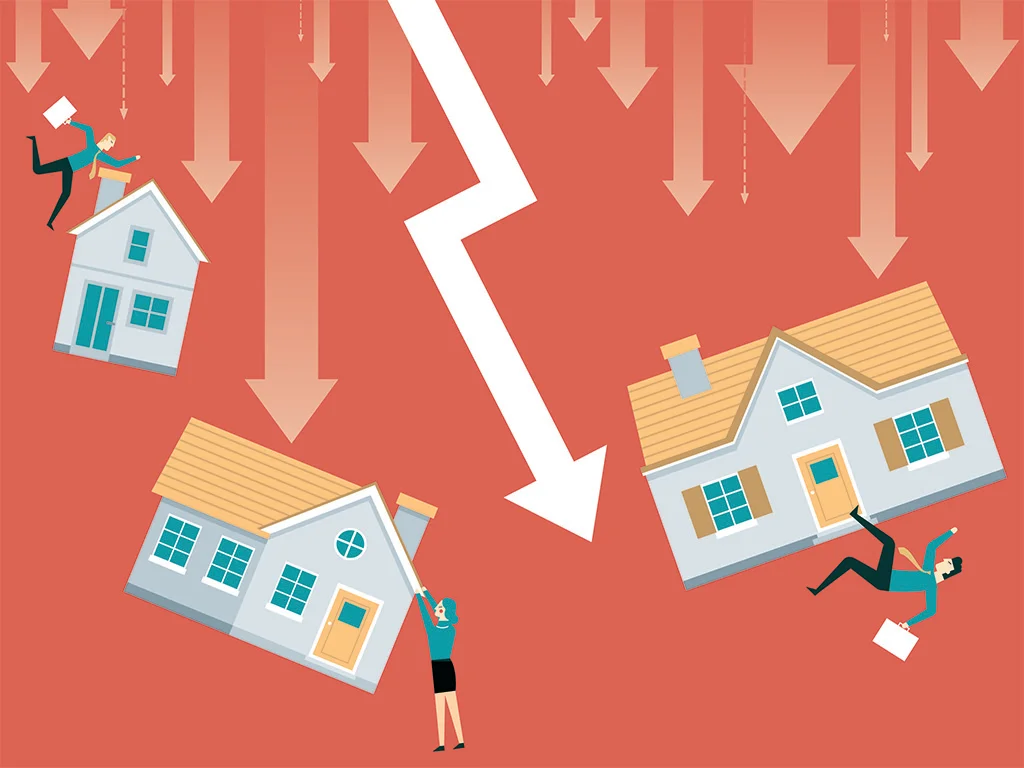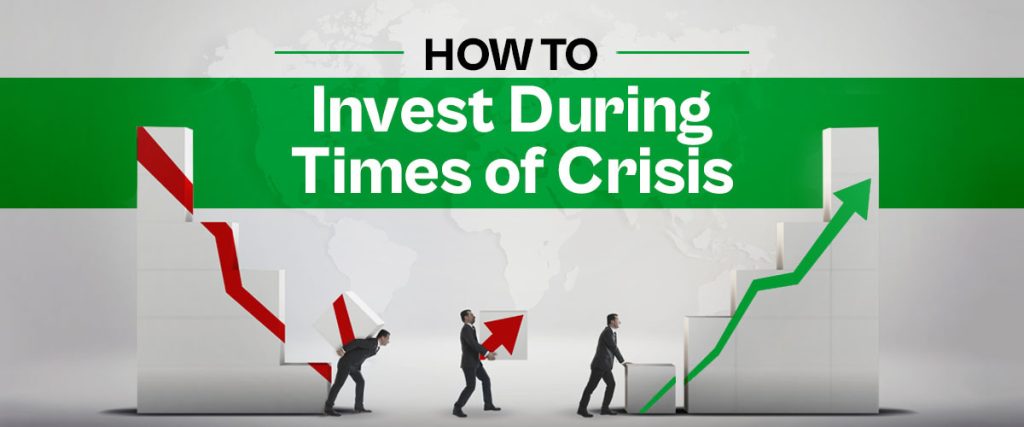Real estate markets can be heavily affected by global economic recessions. During a recession, the overall economic activity slows down, and people start losing jobs, which affects their ability to purchase properties or even keep up with mortgage payments. This creates a ripple effect on the real estate market, leading to a drop in demand for housing, commercial and industrial spaces.
The value of real estate assets is also closely tied to the state of the economy. During recessions, investors may move their funds to safer assets, such as bonds or gold, leading to a decline in demand for real estate assets, which can lead to a fall in property prices. As a result, real estate owners may find themselves with depreciated assets and negative equity, leading to foreclosures and defaults.
Another impact of recessions on real estate is the tightening of lending conditions. As banks and other financial institutions face financial pressure during economic downturns, they may become more cautious in lending money for real estate investments, leading to reduced liquidity in the real estate market.
Furthermore, the commercial real estate market can also suffer during a recession. The demand for office, retail, and industrial spaces may decline as businesses cut costs and downsize. This can lead to a reduction in lease rates, higher vacancy rates, and lower property valuations.
In summary, a global economic recession can have significant impacts on the real estate market, leading to a drop in demand, property values, and liquidity. The commercial real estate market can also be affected by the reduction in business activities, leading to a decline in lease rates and higher vacancy rates.

Historical evidences From 2008 Housing Market Crisis:
One of the most notable global market crashes in real estate history occurred in 2008, during the global financial crisis. The crisis was triggered by the collapse of the US subprime mortgage market, which led to a wave of defaults and foreclosures. This led to a sharp drop in the value of real estate assets in many countries, as well as a global economic recession.
The crash had a significant impact on the real estate markets of several countries, including the United States, Spain, and Ireland. In the US, the housing market suffered a severe decline, with home prices falling by more than 30% in some areas. The foreclosure rate also skyrocketed, leading to a glut of distressed properties on the market.
In Spain, the real estate market was heavily reliant on foreign investment and speculative buying, leading to a massive property bubble that burst during the crisis. Property values dropped by as much as 50% in some areas, and many developers went bankrupt. Similarly, in Ireland, the real estate market was characterized by overbuilding and speculation, leading to a significant decline in property values and a wave of foreclosures.
Dubai was also affected by the global market crash in real estate that occurred in 2008. During the years leading up to the crisis, Dubai had experienced a significant real estate boom, with rapid construction of high-rise buildings, luxury hotels, and other commercial and residential properties.
However, as the global financial crisis hit, the demand for real estate in Dubai began to decline, and property values started to fall. This was exacerbated by an oversupply of properties, especially in the luxury segment, as well as a lack of liquidity in the market.
Dubai’s real estate market was also heavily reliant on foreign investment, particularly from Europe, which was hit hard by the crisis. This led to a decline in investor confidence and a slowdown in real estate transactions.
As a result, many real estate developers in Dubai were left with significant unsold inventories and were forced to cut prices to attract buyers. The crisis also led to a number of high-profile project cancellations, delays, and bankruptcies, including the Palm Jebel Ali and The World Islands.
However, Dubai’s economy is highly diversified, and the government took a number of steps to support the economy and stimulate growth during the crisis. This included injecting liquidity into the banking system, launching infrastructure projects, and attracting foreign investment in non-real estate sectors such as tourism, logistics, and technology. As a result, Dubai was able to weather the crisis and has since experienced a period of sustained economic growth.
Overall, the 2008 global market crash in real estate had a profound impact on the global economy, leading to a prolonged period of economic downturn and financial instability.
Statistical Analysis of 2008 crisis:
- US subprime mortgage market collapse: The US subprime mortgage market collapse was one of the main triggers of the global financial crisis. Between 2007 and 2010, US housing prices fell by 30%, and the number of home foreclosures rose dramatically. By the end of 2010, over 6 million US homes had been foreclosed.
- Real estate crash in Spain: The real estate market in Spain was heavily impacted by the global financial crisis, with property prices falling by over 30% between 2008 and 2013. According to the Bank of Spain, by 2013, over one million unsold new homes were on the market, equivalent to almost 20% of the country’s total housing stock.
- Real estate crash in Ireland: The real estate market in Ireland experienced a major downturn during the global financial crisis, with property prices falling by over 50% between 2007 and 2013. The number of foreclosures also rose significantly, reaching a peak of almost 38,000 in 2011.
- Dubai real estate market crash: The Dubai real estate market was also significantly impacted by the global financial crisis, with property prices falling by up to 50% between 2008 and 2009. The number of real estate transactions also fell sharply, dropping by around 50% from 2008 to 2009.
Despite the challenges faced by these markets during the global financial crisis, they have all shown signs of recovery in recent years. For example, the US housing market has seen a steady increase in prices since 2012, and the Spanish and Irish real estate markets have also experienced a period of growth and stability. Similarly, the Dubai real estate market has rebounded, with prices rising steadily since 2012, reflecting the city’s continued economic growth and diversification.
How Dubai Survived After 2008 Crisis:
Dubai survived from the 2008 global financial crisis through a combination of proactive government policies, economic diversification, and a gradual recovery in the global economy. Here are some key factors that contributed to Dubai’s resilience during the crisis:
- Government support: The Dubai government implemented a range of measures to support the economy during the crisis, including injecting liquidity into the banking system, launching infrastructure projects, and offering financial support to struggling companies. These policies helped to stabilize the economy and restore investor confidence.
- Economic diversification: Dubai has made a concerted effort to diversify its economy beyond real estate and oil in recent years, with a focus on sectors such as tourism, logistics, and technology. This has helped to reduce the city’s reliance on real estate and oil revenues, and has made the economy more resilient to external shocks.
- Attractive investment climate: Despite the crisis, Dubai remained an attractive destination for foreign investors due to its strategic location, business-friendly environment, and favorable tax regime. This helped to attract investment in non-real estate sectors and support the city’s economic growth.
- Gradual recovery in the global economy: The global economy began to recover gradually after the crisis, which helped to boost demand for Dubai’s exports and attract foreign investment to the city. This, in turn, helped to support the real estate market and the wider economy.
Overall, Dubai’s ability to survive the 2008 financial crisis was due to a combination of government support, economic diversification, an attractive investment climate, and a gradual recovery in the global economy. These factors helped to stabilize the real estate market and support the city’s continued growth and prosperity.

Homist Investors’ Guide during crisis:
We at HOMIST advice our investors to be more strict about their investments in 2023 & 2024, we have shortlisted a few steps for every investor that he/she can take to mitigate potential losses during a global economic recession in the real estate market:
- Diversify your portfolio: One way to reduce your risk is to diversify your real estate investments across different locations and property types. This can help to minimize the impact of a downturn in a particular region or sector.
- Focus on cash flow: During a recession, it’s important to prioritize investments that generate steady cash flow. Properties that have stable tenants with long-term leases or are in high-demand rental markets can help to protect your income stream.
- Keep an eye on market indicators: Monitoring market indicators such as vacancy rates, rental rates, and economic data can help you stay ahead of any potential risks in the market.
- Be patient: Economic downturns are often temporary, and real estate markets can recover over time. As an investor, it’s important to have a long-term perspective and be patient through the ups and downs of the market.
- Consider seeking professional advice: Consulting with a real estate professional or financial advisor can help you make informed investment decisions and identify opportunities in the market.
Dubai real estate market is still promising as figures show in Q1 2023, the sales number and volume is still significant and compared to many areas in the world, symptoms are recession in the market can not be seen.
Overall, taking a diversified and conservative approach to real estate investing can help you weather the impacts of a global economic recession and reduce your potential losses.


